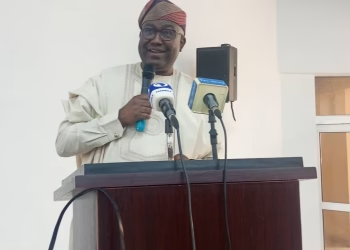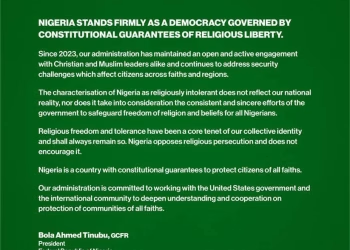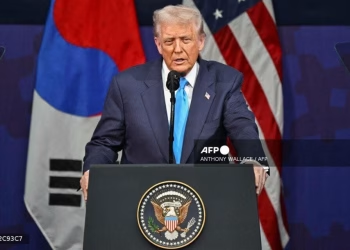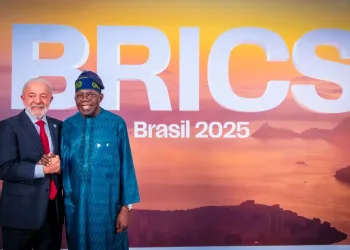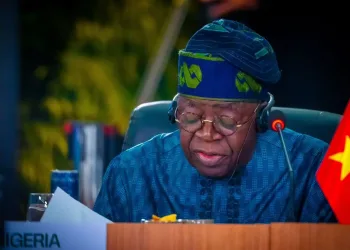Drago Kos, who chaired the OECD’s Working Group on Bribery from 2014 to 2022, calls on the organisation to hold
Italy accountable for its “abject failure” to address anti-corruption concerns following the demise of the OPL 245 case
and the controversial convictions of the former lead prosecutors.
The most recent meeting of the Organisation for Economic Co-operation and Development’s (OECD) Working Group on
Bribery could be a true test of the body’s fight against international corruption.
In the second week of October, the Working Group on Bribery, which monitors and enforces the OECD’s Anti-Bribery
Convention, held an extremely important meeting. At issue was Italy’s response to a highly critical report by the working
group on Italy’s anti-corruption performance. If the body fails to take measures against Italy, the convention is in jeopardy as
an effective anti-corruption instrument, with profound consequences for businesses in the US and the 45 other signatory
countries. As the initiator and one of the main authors of the convention that prohibits the bribery of foreign public officials in
international business transactions – which President Joe Biden’s administration has publicly committed to enforcing – the
US has a particular responsibility to act at this critical moment.
In 2022, a Working Group on Bribery review concluded that recent Italian judgments in three major corruption cases were
incompatible with the convention. One of these was associated with Shell and Eni’s acquisition of the OPL 245 oil block in
Nigeria. Both parent companies, 15 high-level company executives, and several former intelligence officers and middlemen
were put on trial in Milan for international bribery. Evidence was presented in court to demonstrate the apparent awareness
and personal engagement of the highest-level executives from both companies in the deal. However, all the defendants
were acquitted in March 2021.
The Working Group on Bribery heavily criticised the judgment, expressing serious concerns about the court’s treatment of
circumstantial evidence and the standards of proof required under Italian law for foreign bribery prosecutions. Other anticorruption activists have also raised concerns over conduct in the OPL 245 trial, which is far from normal. They have pointed
to some eyebrow-raising peculiarities, such as: alleged interference in the judicial selection procedure for the trial, resulting
in a choice of judges lacking experience or expertise in corruption (the Working Group was highly critical of the judges’
interpretation of Italy’s laws with respect to the OECD Anti-Bribery Convention); allegations (which were denied) that
defendants’ lawyers obtained inappropriate access to the judges; alleged intimidation of the prosecutors; and an alleged
he lead prosecutors in the OPL 245 case were subsequently targeted and subjected to vilification in the Italian media, in
circumstances so strange that they appeared deliberately orchestrated. Once they had been “discredited” by accusations that
they handled the case in a biased and illegal manner, the prosecutors were removed from running the appeal against the
acquittals and replaced by a prosecutor who had no apparent expertise in prosecuting corruption cases. On the first day of
the appeal, the case collapsed in an unprecedented way when the replacement prosecutor immediately withdrew the
appeal. The OPL 245 prosecution in Italy was dead in its tracks without full exhaustion of judicial appeal processes by the
state. (On the week of the latest Working Group on Bribery meetings, a court in Brescia, northern Italy, convicted the two
OPL 245 prosecutors of failing to disclose potentially exculpatory evidence and sentenced them to eight months in prison –
a decision they plan to appeal against.)
The Working Group on Bribery, in its 2022 report, gave Italy two years to address its failings through reforms that included
ending Italian court interpretations of Italy’s foreign bribery offence that are “…incompatible with the [OECD Anti-Bribery]
Convention.” The Working Group also demanded a review and redrafting of Italy’s anti-corruption laws and training sessions
to ensure the judiciary better understands the nature of international corruption. By any credible measure, Italy’s response
seems to be an abject failure: since the 2022 report, cases including the appeal of the OPL 245 trial demonstrate continued
incompatibility with the OECD Anti-Bribery Convention; Italian judicial bodies have denigrated the Working Group on
Bribery; judicial training sessions have criticised the convention; efforts have even been made to weaken Italy’s anticorruption laws; and the prosecution and conviction of the original OPL 245 prosecutors – which could represent a breach of
the convention’s prohibition on political interference in corruption prosecutions – has effectively decapitated the Milan Public
Prosecutor’s Office (which acts as the main anti-corruption unit in Italy). This is the very same office that the Working Group
on Bribery lauded in the 2022 report; one of the OPL 245 prosecutors convicted for his alleged mishandling of the OPL 245
case previously headed the anti-corruption unit.
We are now at a moment of credibility for the OECD Anti-Bribery Convention. Italy has clearly and consciously failed to
respond to the Working Group’s recommendations to bring the country back in line with the convention. A level playing field
no longer exists, to the detriment of all signatory countries including the US. In a world where governments are increasingly
inclined to protect their companies, even in the worst cases of violations of applicable legal norms, such a development may
turn into a real disaster for the basic principles of non-corrupt and fair international business, which the US sought to defend
by launching the idea of the convention following the adoption of the FCPA at the national level.
Therefore, I offer two recommendations. First, the OECD Working Group on Bribery must consider taking measures to hold
Italy responsible for its continuous post-2022 report failings, and it must inquire whether the targeting of the OPL 245
prosecutors constitutes unlawful political interference. Second, in order to ensure justice, I call on the US Department of
Justice to re-open its suspended investigation of the OPL 245 case – it still has jurisdiction to do so.
Copyright © Law Business Research Company Number: 03281866 VAT: GB 160 7529 10



